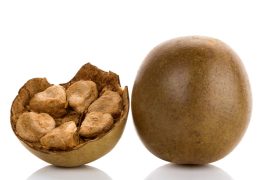According to Ayurveda expert, choosing between green tea and orange juice in the morning depends on individual health goals. For those opting for orange juice, recommends pairing it with a handful of nuts to prevent a rapid blood sugar spike. However, she advises against combining it with regular breakfast or dairy items. On the other hand, green tea is considered beneficial for its antioxidant content and moderate caffeine levels, making it a suitable choice for a morning beverage. Ultimately, a balanced breakfast with protein, fiber, complex carbs, and essential micronutrients is emphasized for overall health, and individuals should make choices based on their specific dietary needs and preferences.
The health benefits of orange juice and green tea can be detailed for a more comprehensive understanding:
Orange Juice:
- Nutrient Profile: Orange juice is rich in Vitamin C, folate, and potassium. It also contains antioxidants.
Benefits:
- Vitamin C: Boosts the immune system and promotes healthy skin.
- Folate: Essential for cell division and DNA formation.
- Potassium: Supports heart health and helps regulate blood pressure.
- Antioxidants: Contribute to overall health by neutralizing harmful free radicals.
- Additional Benefits: Orange juice is known to boost energy levels, reduce inflammation, aid heart health, and cleanse the gastrointestinal tract. It’s a hydrating beverage and can be a refreshing start to the day.
Considerations:
- Fructose Content: Orange juice contains fructose, which is natural fruit sugar. Consuming it with a handful of nuts can help slow down digestion, preventing rapid spikes in blood sugar levels.
- Suitability: Orange juice is generally suitable for hydration, physical activity, and sports. However, individuals with acidity, skin ailments, bleeding disorders, and pitta imbalances may need to limit its consumption.
Green Tea:
- Nutrient Profile: Green tea is rich in polyphenols, particularly catechins, and antioxidants.
Benefits:
- Catechins: Act as powerful antioxidants that may have various health benefits.
- Polyphenols: May help in reducing inflammation and supporting heart health.
- Metabolism: Green tea is believed to stimulate metabolism and aid in weight management.
- Liver Health: Some studies suggest potential benefits for liver health.
Considerations:
- Caffeine Content: Green tea contains caffeine. It is generally advised to avoid caffeine on an empty stomach. Post-meal consumption is recommended.
- Alternatives: Ayurveda suggests various herbal and spice teas for digestion, such as those made from cumin, fennel, coriander seeds, cardamom, and carrom seeds.
- Beneficial Timing: Green tea is considered more beneficial post meals.
Comparison:
- Timing: Orange juice is typically recommended in the morning, while green tea is often suggested after meals.
- Health Considerations: Orange juice may be suitable for hydration, physical activity, and sports. Green tea is associated with various health benefits, particularly for metabolism and weight management, but should be consumed with caution by those sensitive to caffeine.
- Individual Factors: Ayurveda emphasizes understanding individual body types and conditions for optimal food and beverage choices.
In conclusion, both orange juice and green tea offer unique health benefits, and the choice between them may depend on individual preferences, health goals, and specific health conditions. It is advisable to consume them in moderation as part of a balanced diet. Consulting with a healthcare professional or nutritionist can provide personalized advice based on individual health circumstances.
Disclaimer:
The information contained in this article is for educational and informational purposes only and is not intended as a health advice. We would ask you to consult a qualified professional or medical expert to gain additional knowledge before you choose to consume any product or perform any exercise.







